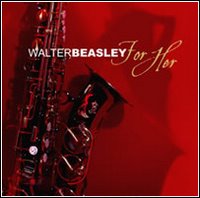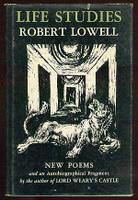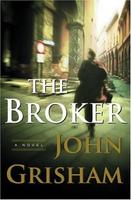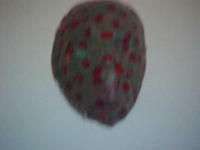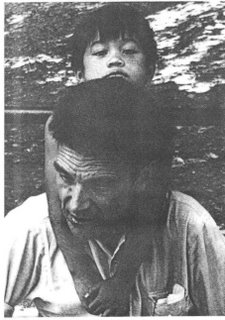
The Call of Stories by Robert Coles. I have been reading this book a bit slowly, savoring the stories Coles tells of his days as an intern, psychologist, and professor and the impact that literature has had on the lives those he meets as well as on himself. More on this, I hope, next time. So far, I can say that I think this is fascinating book. I'm surprised it doesn't show up on more reading lists. It certainly should be read by all teachers of literature.
He Ain't No Bum by Bum Phillips and Ray Buck When I was young I loved to read biographies of interesting sports figures. I remember liking Bum Phillips though I've always been a Cowboy fan, having respect for him for what he had done to make Oilers winners, but also because football seemed just a little more interesting with him around.
But this is not really a biography, and though it does have its moments, it really isn't all that interesting despite its colorful subject. The book is filled with vignettes about Phillips, mostly covering the time he took over as coach of the Oilers through the celebrated season that ended with them getting trounced by the Steelers in the playoffs. Frankly the material covering his career before coaching the Oilers is the most intriguing, but there is precious little of that. Instead, readers are treated to little stories where some sort of "witticism" or supposedly humorous observation as punch line. With each small tale, Buck treats the reader to his own banal murmurings about whatever he has just told us Phillips said or did. Frequently, Buck repeats that Bum is honest or forthright or simple in a world that seems to value those virtues's opposites. In addition, the book is badly written, with a prose style that might be go
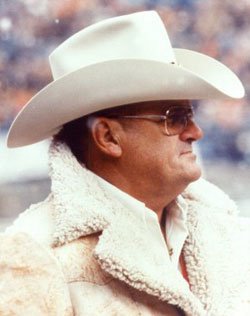 od if Buck was a sophomore in high school. But at the time this book was published (1979), Buck was writing for the Cincinnati Enquirer.
od if Buck was a sophomore in high school. But at the time this book was published (1979), Buck was writing for the Cincinnati Enquirer.Instead of showing Bum Phillips as a wise man who has lived through his share of rough times and worked hard to earn his victories or a man who has met life's struggles with calm and humor, He Ain't No Bum makes the man looking like a doddering, rambling hick who now and then manages to emit a smart phrase. The book might be valuable for sports scholars looking for information about good coaches, but those scholars would have to be the very disciplined kind that who can pour through tedium in order to get gold.
Poetry magazine. Okay, I've been slowly making my way through the most recent editions. My favorite poems have been by C.K. Williams, Stephen Dunn, and a couple by Amit Majmudar. I must recommend an essay by Mary Karr entitled "Facing Alters: Poetry and Prayer." Though my vision of God may be a bit different from Ms. Karr's, I found her essay honest and compelling. In fact, I'll go so far as to say that this honesty is what real religion should be all about. In a world where so many people want to define religionn in general and Christianity in particular with ideas not biblical, but personal, I think Karr's piece is a breath of fresh wind to struggling souls like me. This essay is also a subtle argument for not only the reading of poetry as pastime or academic pursuit, but because of emotional and spiritual needs that are unlikely to be met any other way.
I also would like to recommend you check out this little piece first published in 1926 by Harriet Monroe, founder of this magazine. It is a timely comment on the Christmas season.









